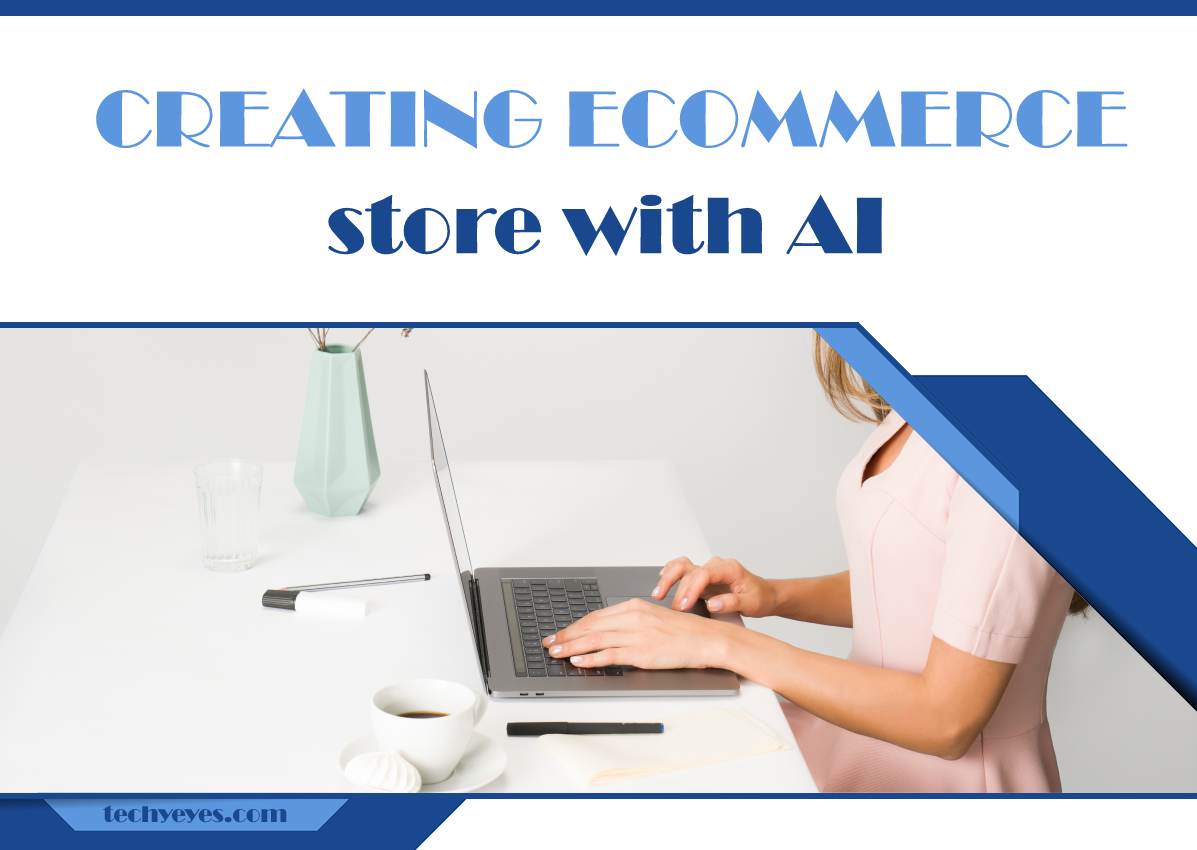Creating an ecommerce store has never been easier, thanks to the advancements in technology and the rise of artificial intelligence (AI). In today’s age of AI, ecommerce store owners can leverage powerful tools and strategies to optimize their online presence and drive more sales. In this article, we’ll explore some of the ways that ecommerce store owners can create a successful online store in the age of AI.

What is AI?
AI stands for “artificial intelligence”. It refers to the development of computer systems that are capable of performing tasks that typically require human intelligence, such as visual perception, speech recognition, decision-making, and language translation.
AI systems use algorithms and machine learning techniques to analyze large datasets and learn from patterns and trends. This allows them to perform complex tasks that would be difficult or impossible for humans to do manually. For example, an AI system could analyze thousands of medical images to identify patterns that indicate the presence of cancer, or it could process vast amounts of financial data to make investment decisions.
AI has many practical applications across a wide range of industries, including healthcare, finance, manufacturing, and transportation. It is also used in consumer applications such as virtual assistants, and personalized product recommendations, and it can be used to create ecommerce store, images, and voice recognition.
As AI technology continues to evolve, it is expected to have an even greater impact on society. Some experts predict that AI could lead to major advancements in fields such as robotics, automation, and space exploration. However, there are also concerns about the potential negative impacts of AI, such as job displacement, privacy concerns, and unintended consequences of AI systems that are not properly designed or tested. As such, there is an ongoing debate about how to best regulate and manage the development and use of AI technology to ensure that its benefits are maximized while minimizing its potential risks.
1. Personalization
One of the most powerful applications of AI in ecommerce is personalization. By leveraging AI-powered algorithms, ecommerce store owners can create a more personalized shopping experience for their customers. This can include personalized product recommendations, targeted marketing campaigns, and personalized content.
For example, Amazon uses AI to recommend products to customers based on their past purchases and browsing history. This personalized approach helps to increase customer satisfaction and drive more sales. Similarly, ecommerce store owners can use AI-powered tools like chatbots and virtual assistants to provide personalized customer support and improve the overall shopping experience.

2. Predictive Analytics
Another key application of AI in ecommerce is predictive analytics. By analyzing data from past sales, customer behavior, and other metrics, AI-powered algorithms can make accurate predictions about future sales and trends. This can help ecommerce store owners to optimize their inventory, pricing, and marketing strategies to maximize their sales and revenue.
For example, AI-powered tools like Google Analytics and Adobe Analytics can provide insights into customer behavior, such as which products are most popular, how long customers spend on the website, and which pages have the highest bounce rates. This data can be used to optimize product descriptions, pricing, and promotions to improve the overall shopping experience and drive more sales.
3. Chatbots and Virtual Assistants
Chatbots and virtual assistants are other powerful tool for ecommerce store owners in the age of AI. By leveraging natural language processing (NLP) and machine learning algorithms, chatbots and virtual assistants can provide personalized customer support, answer frequently asked questions, and even help customers find the products they’re looking for.
For example, Sephora, a leading cosmetics retailer, uses a chatbot to provide personalized makeup recommendations to customers. The chatbot asks customers a series of questions about their skin type, makeup preferences, and other factors, and then recommends products based on their answers. This personalized approach helps to improve customer satisfaction and drive more sales.
4. Voice Search Optimization
As more consumers use voice assistants like Alexa and Google Assistant, voice search is becoming an increasingly important factor in ecommerce. By optimizing their ecommerce stores for voice search, store owners can ensure that their products are more easily discoverable by voice search users.

To optimize for voice search, ecommerce store owners should focus on using natural language in their product descriptions and other content. They should also use schema markup to provide more context to search engines and improve the likelihood of their products appearing in voice search results.
5. Automated Customer Service
Finally, AI can be used to automate customer service and support. By leveraging chatbots and virtual assistants, ecommerce store owners can provide 24/7 customer support without the need for human intervention. This can help to improve customer satisfaction and reduce the workload on customer service teams.
For example, H&M, a leading fashion retailer, uses a chatbot to provide personalized fashion recommendations to customers. The chatbot asks customers a series of questions about their style preferences and then recommends outfits based on their answers. This personalized approach helps to improve customer satisfaction and drive more sales.
In conclusion, the age of AI presents ecommerce store owners with a range of powerful tools and strategies for creating successful online stores. By leveraging personalization, predictive analytics, chatbots and virtual assistants, voice search optimization, and automated customer service, ecommerce store owners can optimize their online presence and drive more sales. As AI continues to evolve and become more accessible, ecommerce store owners should continue to explore new

